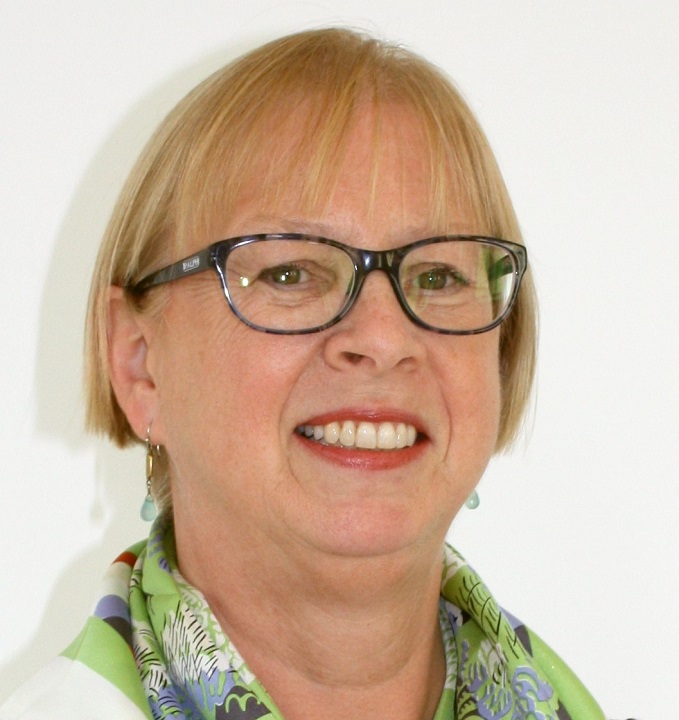It’s hard to believe that we have been co-existing with COVID-19 for over a year. Spring is just beginning, and warmer weather and longer days – and the thought of a COVID-19 vaccine – have many of us feeling a sense of hope, renewal and relief. As we wrap up our series of staff stories, we spoke with some of our colleagues from Provincial Laboratory Medicine Services, Trans Care BC, Perinatal Services BC, the Office of Virtual Health and the Policy Office to learn more about their programs’ abilities to pivot under the threat of COVID-19 and their personal reflections on working through a global pandemic.

Craig Ivany joined PHSA in the new role of Chief Provincial Diagnostics Officer for Provincial Laboratory Medicine Services in April 2020, not long after COVID-19 was declared a pandemic by the World Health Organization. “SARS 2003 immediately came to mind,” he remembers when he thinks back to first hearing about COVID-19. “I knew that B.C.’s response to SARS was amongst the most effective in the world, so I felt that we would naturally manage well through this ‘outbreak.’ But I also expected the then-unnamed virus to be quickly and effectively dealt with, like SARS was. Boy, was that a miss!”
Lab medicine is sometimes considered a quiet player in health care, doing significant work behind the scenes while other areas are heavily profiled. But COVID-19 brought lab medicine to the forefront. “At the earliest stages, lab medicine was thrust into the limelight with the need to stand up effective testing,” Craig explains.
“Within a matter of weeks, the entire lab system began working together to respond and that collaboration has continued through the entire journey. I’m very proud of the enthusiastic and determined response of our lab system, and I believe we’ve earned a new respect from the health care system as a whole and the citizens of this province.”
COVID-19 has given us an inside look at one of the little-seen intricacies of health care. “I believe in the transformative power of laboratory medicine to inform and improve the health of all British Columbians,” Craig remarks. “I feel blessed to be a part of this team, and this journey through the pandemic has provided a glimpse of what our laboratory system can be when it works together. I look forward to being a part of that future.”
Care team coordinator Lucas Wilson is part of the Trans Care BC team and when he looks back on the past year of COVID-19, he is amazed and inspired by the changes that were made in response to the pandemic, but that have increased access for more people in more places around the province.
“I’m proud of how nimble our team was engaging virtual platforms to keep services going,” he says. “For example, our Changing Keys program, which offers gender-affirming voice feminization support, experienced no interruption as we transitioned all sessions to virtual almost immediately. There was a lot we had to un-learn and re-learn in responding to a sudden drastic change in the landscape of care, but I feel that change also opened the door to otherwise unseen opportunity.”
In the case of Changing Keys, that opportunity translated to a much more accessible service delivery that now reaches rural and remote participants who might not have had access to the program prior to going virtual.
Lucas is hopeful that the coming months will bring about a gradual return of some of the things we’ve been without for the past twelve months and counting. “I also foresee the learning and change we have had to take on over the past year will continue to foster accessibility and adaptability of services going forward, and that’s really exciting to me.”
Pregnant individuals, new parents and all their babies need support no matter what the world is dealing with, and that includes a global pandemic. And Perinatal Services BC (PSBC) made sure they were there to help this special patient population through a time like no other.

Ann Pederson, director, population health promotion at BC Women’s Hospital + Health Centre and interim executive director of PSBC, had a lot of questions when COVID-19 began appearing in B.C. “I worried about how we would continue to support pregnant women and individuals; specifically, how might the birthing experience change in the context of COVID-19?” she remembers. “I wondered what it would mean for our staff — how would working remotely affect us individually and as a team? And I worried about whether the public health orders would be effective at addressing the pandemic here in our province.”
But Ann knew the PSBC team would unite and work together to maintain their high quality care and support, even in the face of this unknown virus. The level of collaboration was wonderful. “Obstetrics did not stop for the pandemic!” she exclaims.
“I’m so proud of how PSBC staff members rallied to support other health care providers so that they could provide support to patients and families. We met regularly online with other health authority colleagues and others responsible for perinatal health services to discuss issues. We became a critical part of the infrastructure to develop guidelines to support care, always in partnership with clinical and operational colleagues throughout the province. And we supported the acquisition of PPE for registered midwives through the Home Birth Supply Program, with the assistance of colleagues in PHSA Supply Chain and other programs in clinical policy and clinical services.”
Witnessing the teamwork and partnership that occurred in the past year has given Ann confidence that “the PSBC team will be able to continue supporting perinatal health care, whatever comes our way.” And watching the vaccine program roll out, she is cautiously optimistic as we all move into a new phase of the pandemic journey.
In 2020, virtual health went from being a “nice to have” to a “must have” as it became essential for safely delivering health care to B.C. citizens. The use of virtual health ballooned across the province, from approximately 1,300 virtual visits a week in February 2020 to over 20,000 a week in December 2020. Like any successful initiative, it was the activity behind the scenes that made the growth possible – hard working teams and the collaboration of virtual and digital health leaders across the province were key to developing and rolling out innovative solutions.

Emily Hamilton, director, partnership and system enablers for the Office of Virtual Health, remembers running on adrenaline at this time last year and being in shock at the news of COVID-19 arriving in our backyards. “We were jumping into action and I remember thinking ‘This is actually happening.’” She recognizes the “unbelievable amount of change and system innovation” that has occurred, and is most proud of how everyone came together as a team, as an organization and as a health system. “It is incredible how much we can accomplish (and quickly!) when we are all working towards the same goal,” she marvels.
“Looking ahead, we now have an opportunity to build on this and continue to transform the health system.”
PHSA’s Policy Office manages organization-wide policies and works collaboratively with all PHSA programs and services to support the policy management process across PHSA. When you think of a pandemic, policy and procedure documents may not be the first thing to come to mind, but the truth is that they lay the foundation for many of the changes or adjustments you might see in an acute care setting, corporate office or other site that work to maintain the health and safety of those inside.
“Policy work for a large organization that serves diverse and specialized populations is very challenging at the best of times,” explains Mark Sutherland, PHSA’s policy analyst who supports policy development teams and promotes quality policy work across the organization. “It’s something that remains very invisible to most folks, like the part of the iceberg that sits below the water’s surface.”
Mark describes the beginning of the pandemic as “working through the stages of grief, from denial to acceptance, faster than I can ever recall.” At first he found it hard to believe that B.C. would face a similar situation as those in Wuhan, China, but when public health orders restricting gatherings came into place, the reality began to sink in.

COVID-19 continues to evolve – it’s a dynamic, ever-changing situation. “For policy makers, that meant there was a great need to work collaboratively and adapt to the new landscape,” Mark says. He recalls the creation of the medical mask policy as a prime example, and one he is particularly proud of. “When the Ministry of Health announced the mandatory use of medical masks in health care settings midday on a Thursday, the Policy Office and Transformation Leadership Office supported our Infection Prevention and Control team to create a policy by the following Monday that reflected the perspectives of all our clinical programs, while allowing for flexibility to accommodate site-specific circumstances.
In a very short time period, dozens of leaders and subject matter experts from BC Cancer, the BC Centre for Disease Control, BC Children’s Hospital, BC Women’s Hospital + Health Centre, BC Emergency Health Services, BC Mental Health and Substance Use Services, Health Emergency Management BC, Professional Practice, Supply Chain, Workplace Health and more were consulted.”
Mark is inspired by the spirit of partnership he continues to see across PHSA as a result of the pandemic. “I’m hopeful that policy work for PHSA will follow along this trend of collaboration, engagement and inclusivity,” he shares.
“With the relationships that have been formed over the course of COVID-19, I’m also noticing more and more that policy makers are looking for ways to consult broadly across the organization and making considerations for equity with the use of gender-inclusive language and an application of Indigenous Cultural Safety in their policies. We still have a long way to go, but I’m very excited to see policy makers moving in this direction.”
